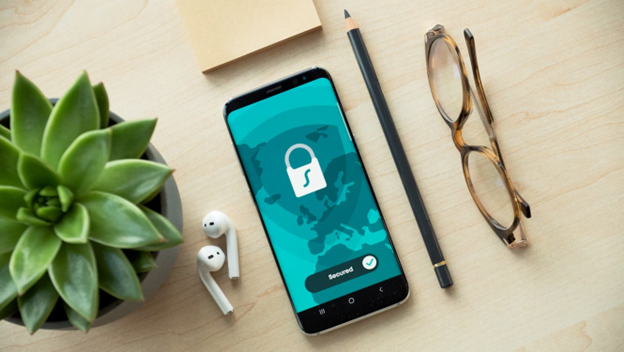
Millions of gamers worldwide participate in online gaming, a popular pastime in which players join digital servers to play interactive games together or against one another. In terms of improving the gaming experience, many online players use a Virtual Private Network (VPN). A VPN securely connects your device to game servers worldwide, encrypting your data to protect it from cyber threats, especially on public Wi-Fi..
What Is a VPN, and How Does It Work for Gaming?
A VPN creates a secure, encrypted tunnel between your device and a remote server operated by the VPN provider, so that no eavesdropper, hacker, or other nefarious actor can access your online data. One of the top advantages of a VPN is that it hides your actual IP address — that’s the special number assigned to you by your internet provider. In addition to encrypting data, by substituting a real IP address with one assigned to the VPN server, users can mask their location and identity online.
The Pros of Using a VPN for Gaming
Access Region-Locked Games and Content
A primary advantage of using a VPN for games is the ability to bypass geographical limitations. Games or items in the game are sometimes limited to specific countries due to licensing agreements or rules. Some sports can also be released in some areas first. With a VPN, you can change the server location and potentially access these games from anywhere.
This also applies to non-GamStop casinos, which may restrict games based on your location. A VPN can help you get to a game server so you can try out games early or get special items in games like Genshin Impact or Lost Arc that are usually locked in your area.
Enhanced Privacy and Security
Gaming with a VPN conceals your IP address. This keeps DDoS attacks from disrupting your connection, particularly when you game with other people. A VPN also secures your data. It maintains the security of your login and payment information, particularly when you're on public Wi-Fi.
Potential Lag Reduction
While VPNs can slow your connection, they may reduce lag in rare cases, such as when bypassing ISP throttling or using optimized gaming servers. Some VPN services have servers for gaming that send data more directly to game servers, which can reduce lag in titles like Call of Duty or Fortnite.
Bypassing IP Bans
If you’re unfairly banned from a game server due to an IP issue, like a shared network or false ban, a VPN can help. It gives you a new IP address to bypass the ban. A VPN is a great benefit to have because it assigns your device a new, new IP address — one associated with the VPN server, not your network. This IP change effectively allows you to sidestep the ban on your old IP and thus return to the game server with relative ease.
The Cons of Using a VPN for Gaming
Potential Speed Reductions
For gamers, the primary downside is connection speed. Encryption and server distance both add latency to your connection, which impacts reaction time in games. Even top VPNs introduce latency, frequently a few milliseconds. Now, milliseconds are negligible in most instances, but in competitive gaming, they can be game-changing.
Compatibility Issues with Some Games
VPNs are not compatible with every game. Certain games or venues, such as Destiny 2, will detect VPN use as suspicious activity and will temporarily ban or suspend you. This is because VPN's will indicate that you logged in to your account from multiple places in a short time frame, thereby triggering automatic security features. It is best practice to read the user agreement of a game and see if VPN use is allowed.
Cost of Premium VPNs
Free VPNs tend to be slower, have data caps, and fewer servers — all of which impede gaming. Dependable VPNs with quicker speeds and additional servers tend to be paid, on either a monthly or annual basis. Unless you are gaming competitively or accessing content in other regions, there’s likely no good reason to deal with a paid VPN if speed throttling isn’t an issue.
Setup and Maintenance Hassles
Configuring a VPN for gaming is often quite difficult. You might rotate through several servers to locate the one that offers optimal game speed. With no contention-aware VPNs, some VPNs will make you establish a VPN, as it turns out, again, for improved gaming. This can be really hard if you aren’t technical. You might even have to switch internet connections or troubleshoot over and over if the VPN disconnects while trying to reestablish the connection.
Tips for Using a VPN for Gaming
If you do decide to employ a VPN, follow these tips to maximize your experience:
- Choose a reputable VPN: Opt for services with a history of low-latency servers, such as NordVPN, ExpressVPN, or Surfshark. Consult reviews for game-specific performance.
- Pick nearby servers: Connect to a server geographically close to the game server to minimize latency.
- Test before committing: Many VPNs offer free trials or money-back guarantees. Test the service with your favorite games to ensure it doesn’t hurt performance.
- Avoid free VPNs for gaming: Stay away from free VPNs for gaming, as they typically don’t offer the speed or server selection necessary.
Conclusion
VPNs can unlock great gaming content and protect your privacy, and maybe even speed up your connection, but it’s not without its pitfalls. They might affect your speed, produce errors with specific games, and add costs. Before subscribing, see if the advantages outweigh the disadvantages for your situation. VPNs can be useful for a selection of online casinos or ensuring better safety while playing Overwatch, as long as they match your needs.







